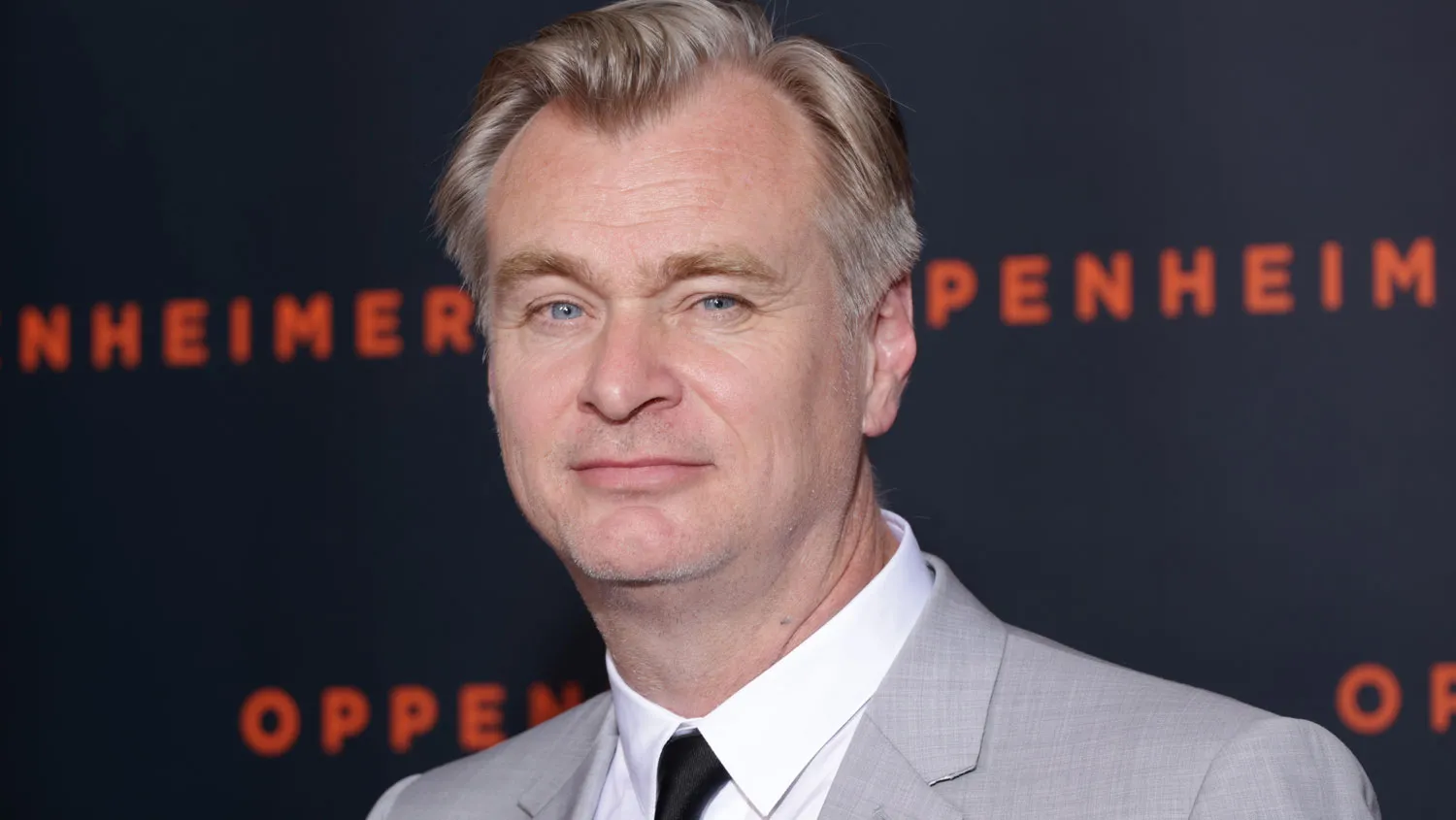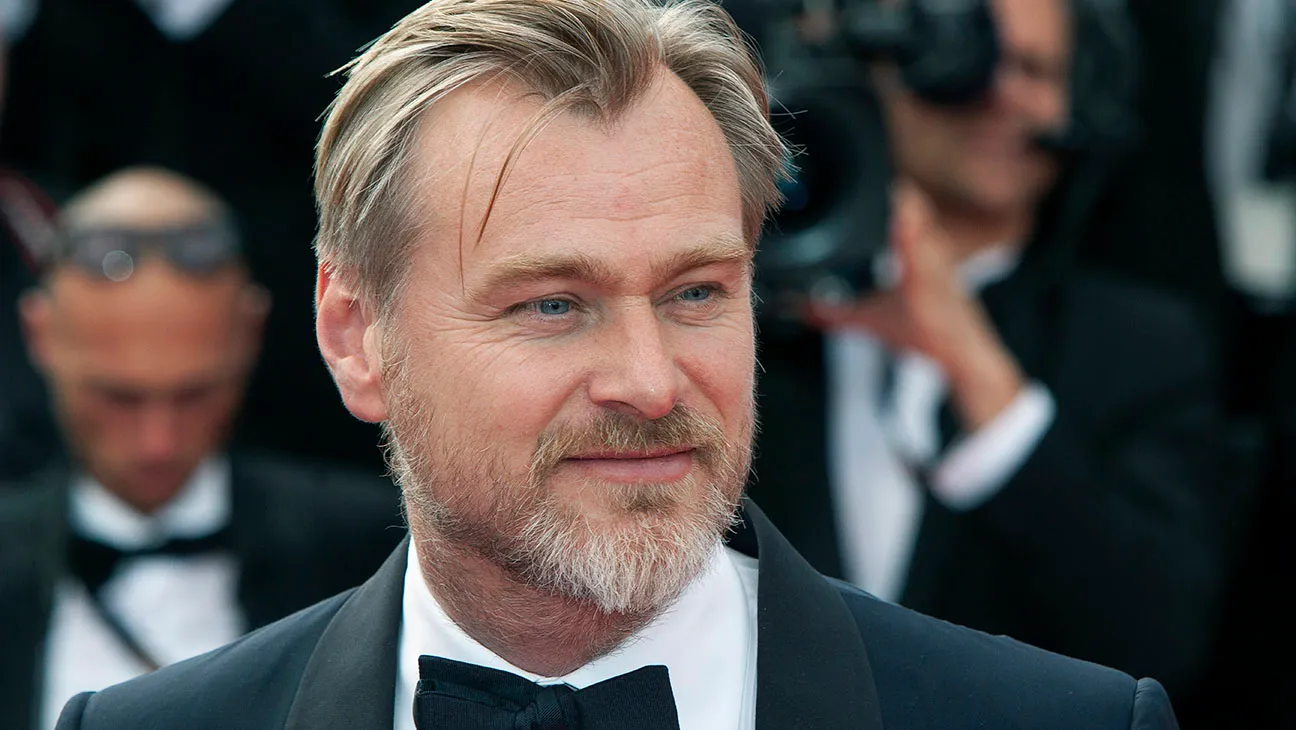In the labyrinth of cinematic history, few films have etched a mark as indelible as Christopher Nolan’s “The Dark Knight.” A tapestry of moral dilemmas and psychological depth, the film transcends its comic book origins to explore the dark interplay between heroism and villainy.
At the heart of this exploration lies a line that has perplexed and intrigued audiences and even its own director, Christopher Nolan. This piece delves into the fascinating story behind “You either die a hero or you live long enough to see yourself become the villain,” shedding light on its creation, Nolan’s candid revelations, and its enduring legacy in the realm of film and beyond.

A Line That Echoes Through Time
It’s a phrase that has transcended its cinematic boundaries, becoming a staple in discussions about power, corruption, and the fragile nature of heroism. Spoken by Aaron Eckhart’s Harvey Dent, “You either die a hero or you live long enough to see yourself become the villain,” encapsulates the tragic trajectory of countless public figures and fictional characters alike. Yet, the irony is not lost on us that Christopher Nolan, the architect of this modern-day epic, did not conceive this line. Rather, it was the brainchild of his brother, Jonathan Nolan.
In an intimate conversation with Deadline, Christopher Nolan expressed his complex relationship with this iconic line, admitting, “I’m plagued by it because I didn’t write it. My brother [Jonathan] wrote it. It kills me, because it’s the line that most resonates.” This candid admission offers a rare glimpse into the creative dynamics between the Nolan brothers and underscores the serendipitous nature of storytelling, where sometimes, the most profound insights come from unexpected sources.
The Dark Knight: A Legacy Unmatched
Released in 2008, “The Dark Knight” not only set a new benchmark for comic book movies but also redefined what audiences expect from blockbuster cinema. Its intricate narrative, coupled with Heath Ledger’s spellbinding portrayal of The Joker, has left an indelible mark on the psyche of viewers and critics alike. The film’s exploration of the dichotomy between chaos and order, through the lens of Gotham’s crusader and his anarchic nemesis, resonates with the philosophical underpinnings of Nolan’s line.
“The Dark Knight” is often hailed as a masterpiece, a sentiment that Nolan himself seemed to grapple with, especially in the context of this pivotal line. Reflecting on its meaning, Nolan shared, “And at the time, I didn’t even understand it…And then, over the years since that film’s come out, it just seems truer and truer.” This evolution in understanding underscores the line’s prescient nature and its reflection of the cyclical rise and fall of heroes in public consciousness.
#CillianMurphy on #ChristopherNolan:
“We have worked together for so long, we kind of have similar wavelength going on, about stuff…”♥️
His side profile is insane 🥺 pic.twitter.com/xdXkU6g2ej— Cill-i-am 🎼 (@cill_i_am) March 1, 2024
Oppenheimer: Christopher Nolan’s Latest Foray into the Complex
Post-“The Dark Knight,” Christopher Nolan has not shied away from exploring complex narratives and characters, with “Oppenheimer” being his latest cinematic venture. The biographical drama, nominated for 13 Academy Awards, including Best Picture and Best Director, showcases Nolan’s continued fascination with the themes of power, ethics, and the human condition.
The film’s critical and box office success signals not just the director’s prowess in storytelling but also his ability to engage with weighty historical and philosophical questions.

As the 96th Academy Awards approaches, the anticipation around whether “Oppenheimer” will earn Nolan his first Oscar is palpable. Yet, irrespective of the outcome, Nolan’s body of work, especially “The Dark Knight,” will continue to be dissected and admired for its deep narrative layers and philosophical insights.
The Line That Lives On
Christopher Nolan’s reflection on the line from “The Dark Knight” reveals not just a moment of creative humility but also the unpredictable journey of storytelling. What was once a line that puzzled its own director has become a cornerstone of the film’s legacy, embodying the intricate dance between heroism and villainy.
As Christopher Nolan’s cinematic journey unfolds, with “Oppenheimer” being the latest chapter, it’s clear that his films will continue to challenge, inspire, and provoke thought, much like the line that he once struggled to understand. In the end, perhaps the true power of “You either die a hero or you live long enough to see yourself become the villain” lies in its ability to mirror the complexities of the world it seeks to depict, reminding us that the essence of storytelling is to reflect the multifaceted nature of humanity itself.









